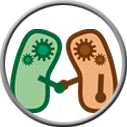Team:Calgary/Notebook/Protocols/Process26
From 2011.igem.org
(Difference between revisions)
Emily Hicks (Talk | contribs) |
Emily Hicks (Talk | contribs) |
||
| (One intermediate revision not shown) | |||
| Line 4: | Line 4: | ||
TITLE=Buffer Preparation| | TITLE=Buffer Preparation| | ||
BODY=<html> | BODY=<html> | ||
| - | <p>The electrode and the sample to be measured need to be in a solution that is conductive to electricity to be able to measure the oxidation. To make our buffer, | + | <p>The electrode and the sample to be measured need to be in a solution that is conductive to electricity to be able to measure the oxidation. To make our buffer, we used calcium chloride dissolved in nanopure water the most effective concentration was found to be at 0.1M. Our solution was made according to the following:<p><br> |
| - | + | <li>22.2g of CaCl<sub>2</sub></li> | |
| - | <li> | + | |
| - | + | ||
<p>The buffer should be made fresh for each sample that is to be run, with the total volume equalling 20mL in a 50mL beaker. The way to make the buffer is as follows:</p><br> | <p>The buffer should be made fresh for each sample that is to be run, with the total volume equalling 20mL in a 50mL beaker. The way to make the buffer is as follows:</p><br> | ||
<ol> | <ol> | ||
<li>Add 1mL of the NaCl</li> | <li>Add 1mL of the NaCl</li> | ||
<li>Add 1mL of the NaH<sub>2</sub>PO<sub>4</sub></li> | <li>Add 1mL of the NaH<sub>2</sub>PO<sub>4</sub></li> | ||
| - | <li>Add (18-X)mL of nanopure water, where X is the amount in mL of sample to be measured</li></ol><br><br><br> | + | <li>Add (18-X)mL of nanopure water, where X is the amount in mL of sample to be measured (This brings the pH to about 8.6)</li></ol><br><br><br> |
</html> | </html> | ||
}} | }} | ||
Latest revision as of 02:16, 29 October 2011









Buffer Preparation

The electrode and the sample to be measured need to be in a solution that is conductive to electricity to be able to measure the oxidation. To make our buffer, we used calcium chloride dissolved in nanopure water the most effective concentration was found to be at 0.1M. Our solution was made according to the following:
The buffer should be made fresh for each sample that is to be run, with the total volume equalling 20mL in a 50mL beaker. The way to make the buffer is as follows:
- Add 1mL of the NaCl
- Add 1mL of the NaH2PO4
- Add (18-X)mL of nanopure water, where X is the amount in mL of sample to be measured (This brings the pH to about 8.6)

 "
"






